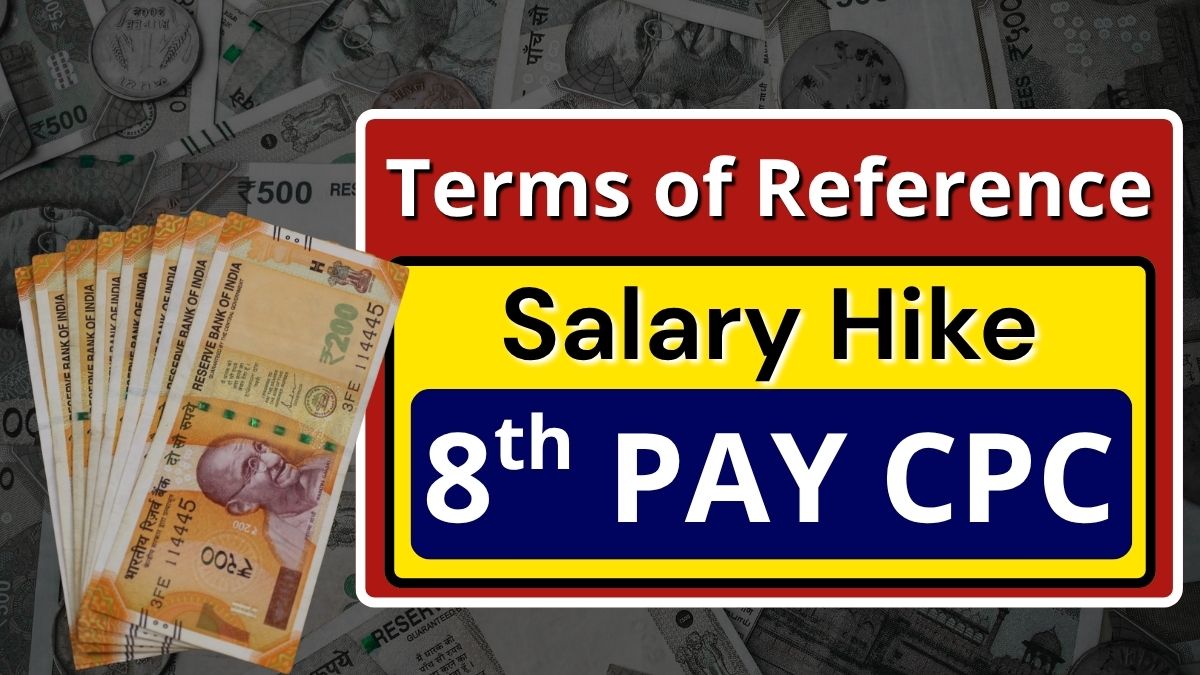For months, millions of Central Government employees had one burning question “When will the 8th Pay Commission be announced?” On October 28, that wait finally ended. The Union Cabinet has officially approved the formation of the 8th Pay Commission (8CPC) and cleared its Terms of Reference (TOR).
The announcement has brought a wave of excitement across government offices, as employees now look forward to a major salary revision expected from January 2026.
What Does the 8th Pay Commission Mean for You?
Here’s the thing — the 8th Pay Commission isn’t just about a pay hike. It’s about adjusting salaries, pensions, and allowances to match the rising cost of living. The Commission’s recommendations will define how much more central employees earn, and even how pensioners benefit.
The panel will start its work in November 2025, and the final recommendations are expected within 18 months.
Expected Salary Hike: 18% to 24% Increase
The 7th Pay Commission had introduced a 14.27% increase, which was helpful but modest. This time, experts are predicting a higher hike — between 18% and 24%.
The real game-changer will be the fitment factor, which decides how your existing basic pay is multiplied to calculate the new pay.
- In the 7th CPC, the fitment factor was 2.57, setting the minimum salary at ₹18,000.
- For the 8th CPC, discussions suggest a new fitment factor of 1.92 to 2.86 — with 1.92 being the most talked about figure.
If that happens, the minimum basic salary could rise from ₹18,000 to ₹34,560 — almost double.
Big Changes Beyond Basic Pay
It’s not just the basic salary getting a boost. Here’s what else is expected to change:
- Dearness Allowance (DA): Will reset to 0% and start increasing every six months again.
- House Rent Allowance (HRA) & Transport Allowance (TA): Likely to rise in proportion to the new pay scales.
- Pension: Minimum pension could jump from ₹9,000 to somewhere between ₹15,000 and ₹20,000, while higher pensions may cross ₹1.25 lakh.
- Gratuity & PF: Both will increase due to higher basic pay, benefiting retiring employees and pensioners alike.
Who Stands to Gain the Most?
Employees between Level 1 and Level 6 in the Pay Matrix — such as clerical, technical, and support staff — are expected to see the largest jump in take-home pay. However, senior-level officers will also gain substantially through revised allowances and pension updates.
Even private sector companies might feel the ripple effect, as higher government pay often pushes corporate firms to revise their salary structures to retain talent.
What’s Next?
The 8th Pay Commission team will begin drafting recommendations soon, and if everything goes according to plan, the new salary structure could take effect from January 1, 2026.
For government employees and pensioners, this isn’t just another policy — it’s a chance for real financial relief after years of inflation and rising living costs.
So yes, the festive season has indeed brought something to celebrate.
Frequently Asked Questions
1. When will the 8th Pay Commission be implemented?
It’s expected to take effect from January 1, 2026, once the Commission submits its final report within the next 18 months.
2. What is the expected salary hike?
Experts predict an increase of 18% to 24% in overall pay, depending on the final fitment factor decided by the government.
3. Will pensioners also benefit from the 8th Pay Commission?
Yes. Pensioners will see higher pension amounts, improved gratuity, and revised allowances in line with the new pay matrix.












